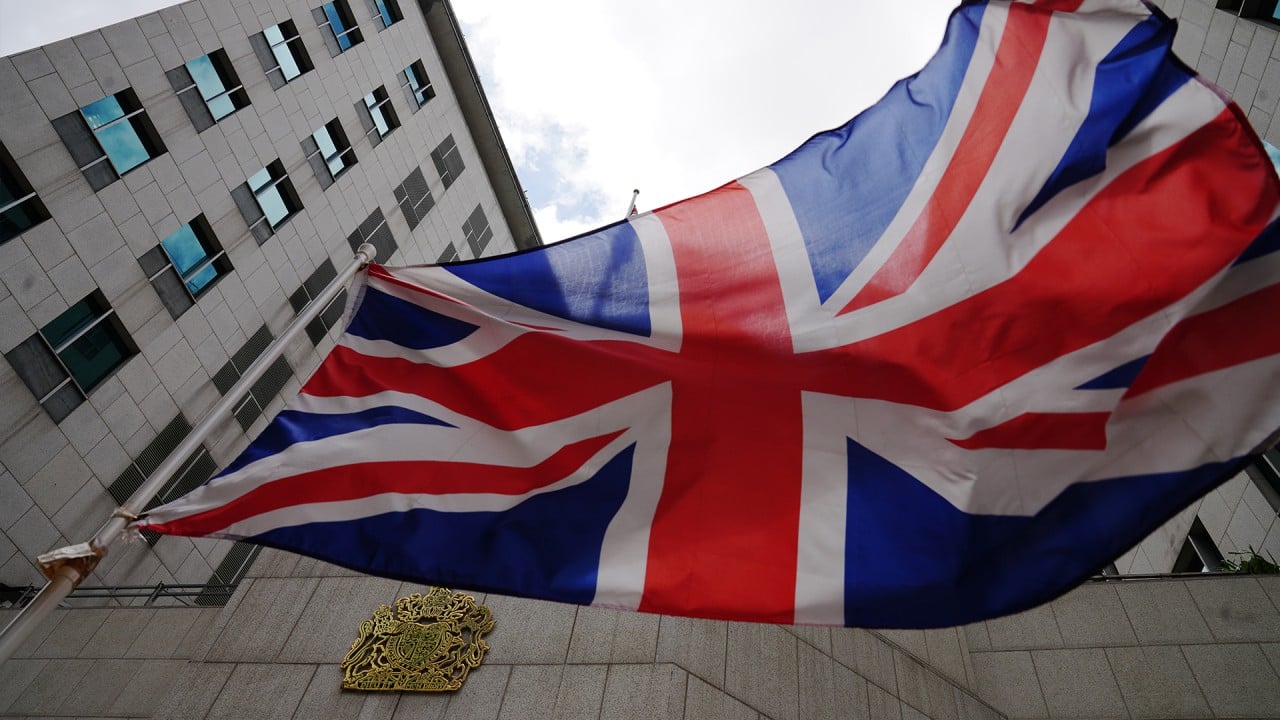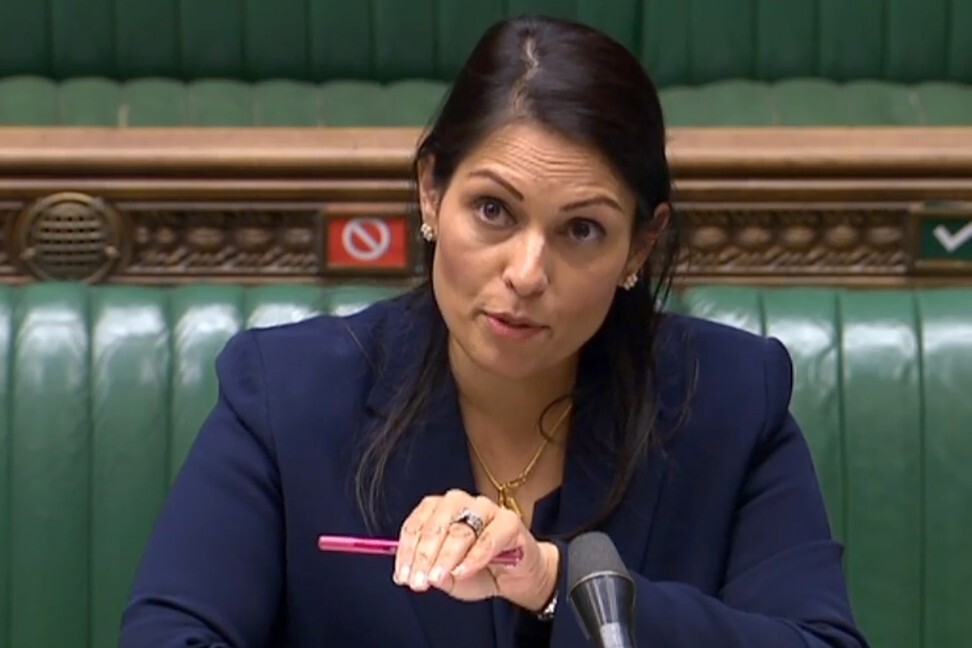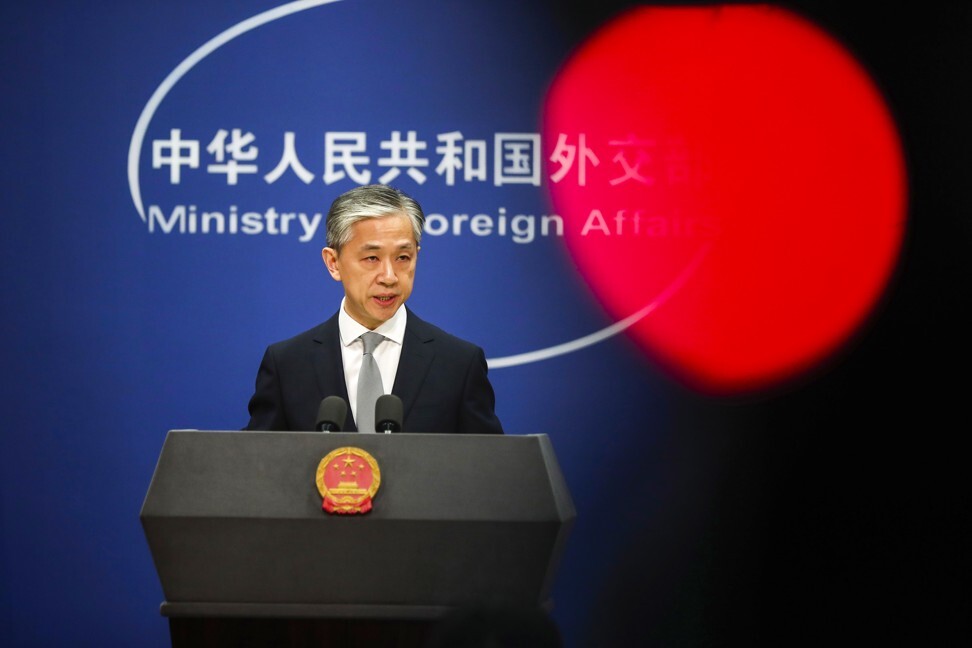
Beijing threatens to stop recognising Hong Kong BN(O) passports in retaliation for British offer to city residents
- Central government lashes out at London move paving the way for millions of Hongkongers to settle in Britain
- Beijing response will do little to put off those wanting to emigrate, say observers who see UK’s offer as more generous than expected
The British Home Secretary Priti Patel on Wednesday revealed that Hongkongers with BN(O) papers wishing to move to the United Kingdom would be exempt from its income threshold requirements and allowed to stay for up to five years, at which point they could apply for full citizenship.
The move infuriated Beijing, as a Ministry of Foreign Affairs spokesman accused London on Thursday of meddling in China’s internal affairs.

03:14
UK unveils details of citizenship offer for Hongkongers with BN(O) passport holders
“The British side has ignored the solemn representation lodged by China, deliberately resorting to political manipulation on the issue of BN(O), openly defying its pledges and violating international law and fundamental principles,” spokesman Wang Wenbin told a daily press briefing in Beijing.
“As the British side violates its pledges in the first place, the Chinese side will consider stopping recognising BN(O) as a valid travel document while reserving the rights for further measures.”
The Hong Kong government subsequently issued a “solemn declaration” backing the Beijing response, saying: “The special administrative government hereby renders support and full cooperation.”
Britain unveils details of citizenship offer for Hongkongers
It accused Britain of breaching the Sino-British Joint Declaration, signed by the then Chinese Premier Zhao Ziyang and UK Prime Minister Margaret Thatcher in 1984 and laying the foundations of the “one country, two systems” governing principle for Hong Kong, under which the city is ruled from Beijing but promised a measure of autonomy.
On signing the declaration, the British government pledged not to confer the right of abode on BN(O) holders who are Chinese nationals in Hong Kong.
Britain has repeatedly referred to the document when asserting its responsibilities in relation to Hong Kong, although Beijing has called the treaty outdated.
But on Thursday a Hong Kong government spokesman accused London of hypocrisy by pursuing its offer for BN(O) holders.

“The British government has deliberately violated the memorandum pledged by the UK at the time of Sino-British Joint Declaration and ignored the Chinese side’s stern objection and repeated representations,” the spokesman said.
BN(O) rights advocate Wilson Li Chung-chak, who has conducted research into how different countries view the travel document, said Beijing’s move was likely to be symbolic rather than having any real impact.
He said Hong Kong people entering mainland China would typically use the home return permit, a visa granted by the mainland government, rather than their BN(O) papers.
Hongkongers lose taste for overseas property elsewhere amid BN(O) offer
Former Hong Kong secretary for security Regina Ip Lau Suk-yee said if China’s foreign ministry proceeded with the move, the city’s Immigration Department might instruct flight companies to stop selling tickets to holders of the invalidated BN(O).
But Andrew Lo, chief executive at Anlex, a Hong Kong-based immigration consultancy firm, said Beijing’s threatened intervention would not stop Hongkongers moving to Britain.
“As long as the UK and other governments still recognise BN(O), the impact of Beijing’s statement will be small in reality,” he said.

The details revealed by the British government on Thursday extended its proposal to cover not just the 300,000 or so BN(O) holders, but an estimated 2.9 million eligible Hongkongers.
The actual passport is no longer needed, according to the Home Office, so long as the applicant has the BN(O) status.
Wilson Chan Wai-shun, from research group Global Studies Institute Hong Kong, said the offer from the UK government was wider than expected and had a broad definition of BN(O) holders’ dependants.
"For instance, the definition of a dependant included not just couples who have got married but people cohabiting for more than two years may be covered too,” Chan said.

03:08
Hongkongers fearing national security law see BN(O) passports as sign of hope
The definition also covered young people born after 1997, making them ineligible for BN(O). Some of them might be considered too old to be deemed dependants of their passport-holding parents, but the UK authorities said there was room for discretion.
While agreeing the UK’s proposal was “very generous”, Jason Yu Wai-lung, chief immigration consultant at Smart2Go, said more clarifications would be needed in a few areas.
He queried whether an applicant’s children would be allowed to go to a state school or if they had to be privately educated, incurring hefty fees. “These little details could make all the difference,” Yu said.
Owen Tang, 20, said he planned to study in Britain next year. Born after 1997, he is not eligible for a BN(O) passport, but his mother has one. “We have talked about it. Let’s see what happens.”
Additional reporting Viola Zhou

